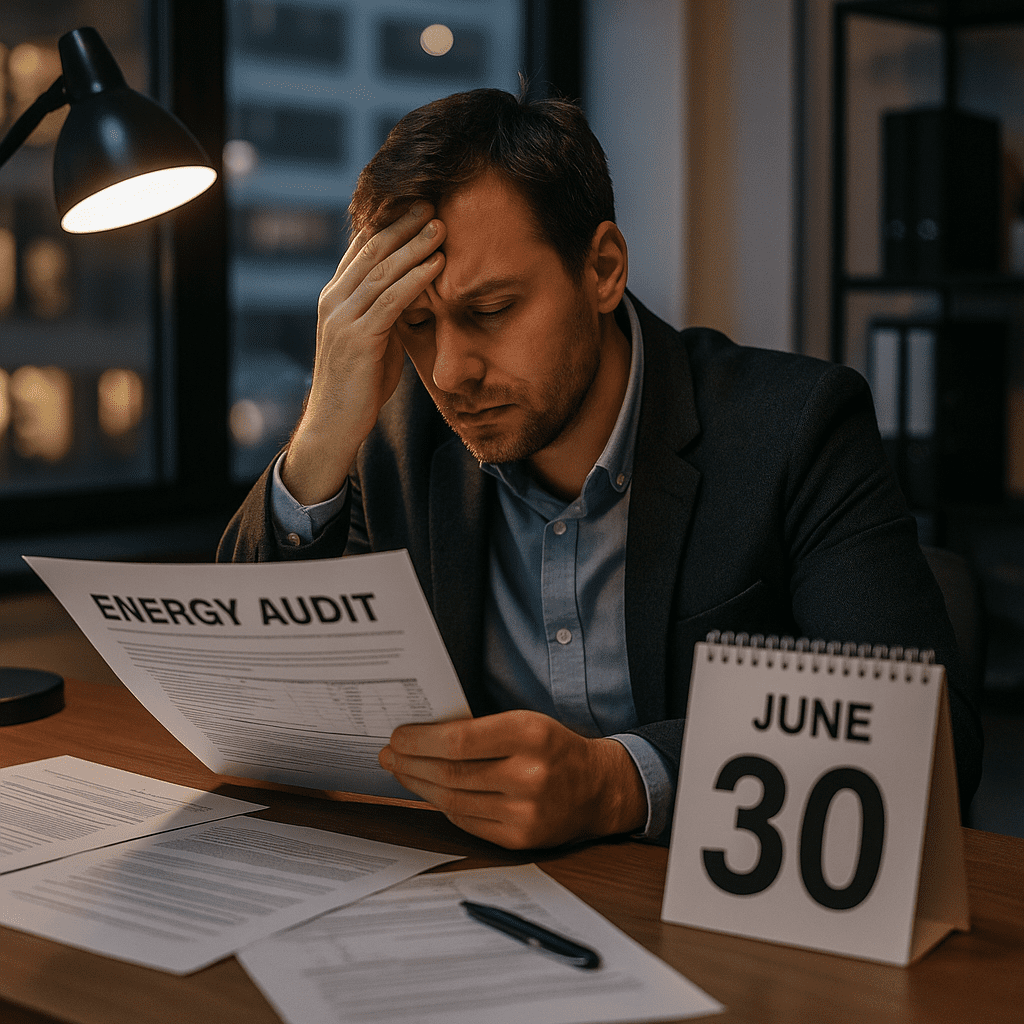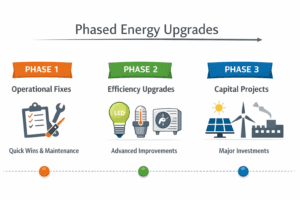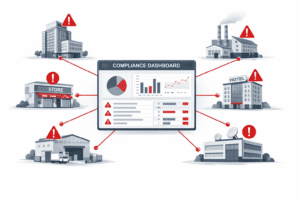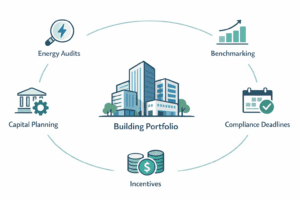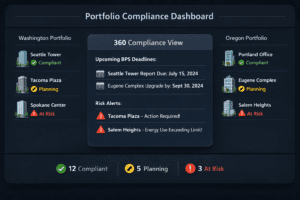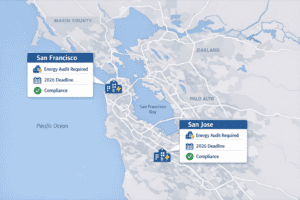Philadelphia’s Building Energy Performance Policy (BEPP) mandates commercial property owners to complete regular energy audits to meet the city’s energy standards. This policy isn’t optional. Failure to comply could result in fines of up to $500 per day.
This article outlines everything you need to know about the Philadelphia energy audit law 2025, how to stay ahead of the curve, and why acting early is your best move.
What is the Philadelphia Energy Audit Law for 2025?
Fines are rising fast, is your building ready?
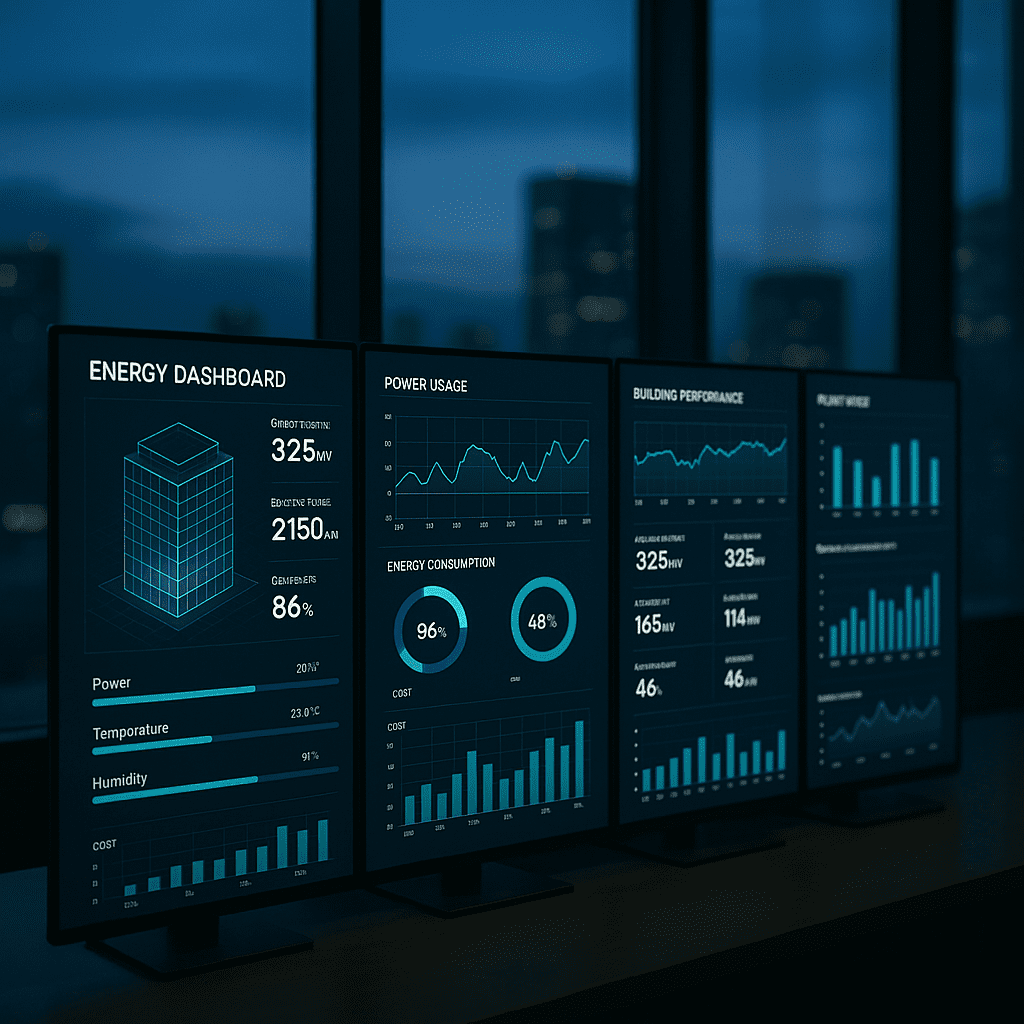
The Philadelphia Building Energy Performance Policy was enacted to reduce emissions and promote energy efficiency across the city’s commercial sector. In 2025, the policy is backed by a large fine enforcement team.
Here’s what commercial building owners need to know:
- Applies to non-residential buildings over 50,000 square feet
- Requires submission of a certified energy audit or tune-up report
- Audit must be conducted by an approved professional
- All reports must be submitted to the City of Philadelphia before June 30, 2025
If you’re a property manager, building owner, or operator, this law applies to you. Failure to comply doesn’t just risk fines, it can jeopardize leases, insurance, and tenant relationships.
Understanding the 6/30 Audit Deadline in Philadelphia
The 6/30 audit deadline in Philadelphia isn’t flexible, and the city has made it clear there will be no blanket extensions.
Here’s what’s at stake if you miss the June 30th deadline:
- $500 per day in fines until compliance is achieved
- Possible public listing as a non-compliant property
- Legal actions from tenants or leaseholders
- Difficulty securing financing or insurance renewals
If you do miss the deadline, you can recover your compliance.
Cities like Philadelphia are tying energy performance to broader ESG compliance. That means non-compliance isn’t just a legal issue it’s also a brand and financial risk.
What Is the Philly Commercial Audit Requirements?
Confused by Philly’s audit rules? You’re not alone.
Philadelphia’s audit protocol is strict. Here are the core components of the audit requirement for commercial buildings:
- ASHRAE Level II or equivalent energy audit
- Must include building benchmarking data
- Identifies energy-saving opportunities with ROI analysis
- Performed by certified energy professionals approved by the city
- May include HVAC, lighting, building envelope, and control systems
Your report will need to demonstrate both current performance metrics and clear recommendations for improvements.
For many owners, the complexity isn’t the audit, it’s knowing how to comply with Philadelphia’s laws without disrupting operations or overspending.
Why Act Now? Avoiding Philadelphia Energy Audit Penalties
Waiting carries monthly fines.
Waiting until spring or early summer to address your compliance is risky. Auditors are already booking months in advance, and the city won’t be forgiving.
Avoid these common pitfalls:
- Auditor backlogs: Qualified professionals are limited; demand is rising.
- Rush premiums: Last-minute audits often cost 25–50% more.
- Submission errors: Rushed filings lead to fines even if the audit was done.
- Fines accumulate daily: $500/day adds up fast, $15,000/month or more.
Acting early reduces stress, ensures accuracy, and locks in lower-cost service providers.
Avoid Philadelphia energy audit penalties, act before the rush hits (or contact us to recover your compliance if you missed the deadline).
What Makes a Good Energy Audit Partner in Philly?
Choose the wrong auditor, and you will pay the price.
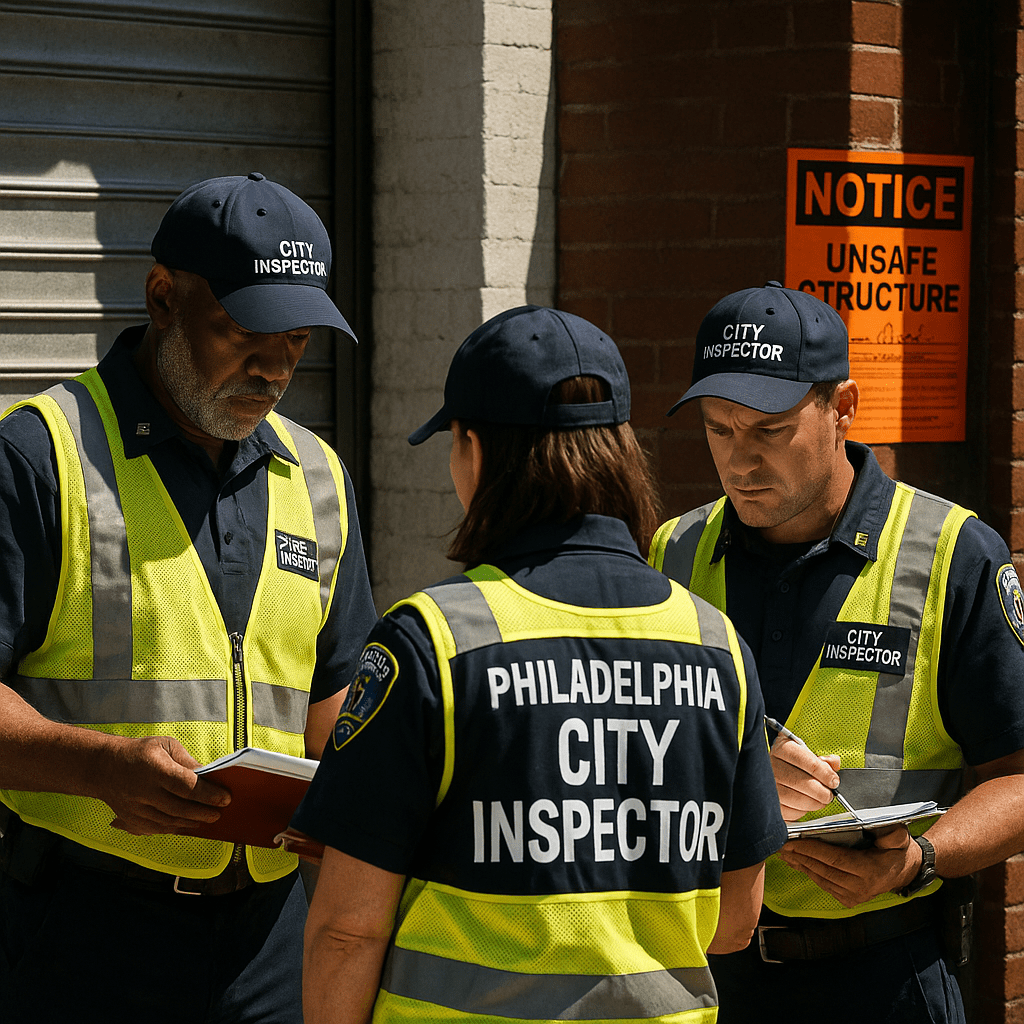
Not all energy audit providers are equal, and the city doesn’t accept every submission.
Here’s what to look for in a trusted audit partner:
- Experience with Philadelphia energy ordinance requirements
- Certified to perform ASHRAE Level II audits
- Proven track record with building audit services in Philly
- Transparent process and pricing
- Willingness to manage submission and follow-ups with the city
You want a team that understands both the technical and regulatory sides.
Summary: The Cost of Waiting vs. the Value of Early Action
Delay now, regret later, and fines quickly stack up.
The energy audit deadline in Philadelphia is more than just a regulatory nuisance. It’s a high-stakes compliance issue tied to daily financial risk, operational stability, and long-term asset value.
To recap:
- You must submit a compliant audit by June 30, 2025
- Late compliance can cost $500/day
- Delaying increases costs and risk
- Early action locks in audit slots and pricing
- Your building’s reputation, and valuation, are on the line
Don’t get caught unprepared. Make 2025 the year you lead in compliance, not chase it.
Avoid $500/day fines, schedule your Philadelphia audit today using our instant audit quote. See how much your audit will cost in less than 30 seconds by,
Using The Instant Pricing Tool


